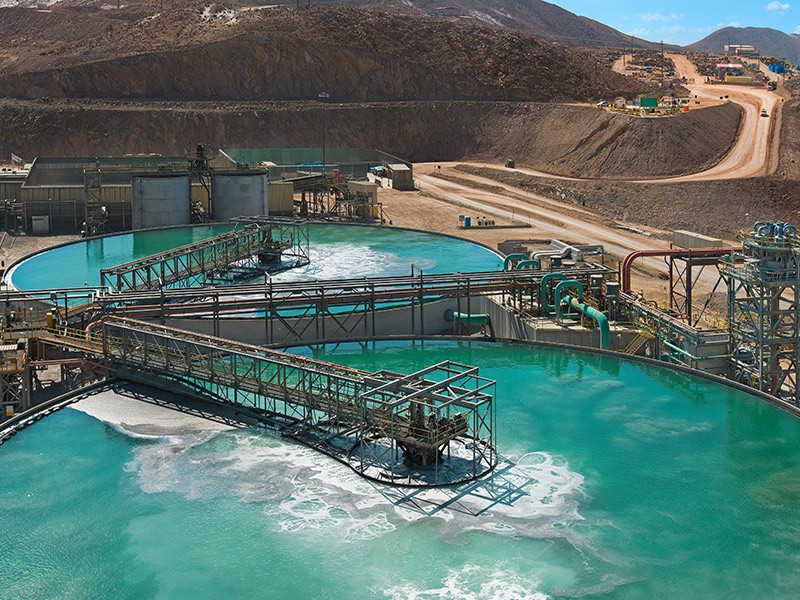CEEC Ramps Up Work on Global Water Initiative (GWI)
Water is a critical risk for almost all resources companies and communities across the globe. According to a United Nations report, 50% of the world could be impacted by water shortages by 2050. In the US alone, 4 billion gallons are withdrawn each day by the resources sector. Meanwhile, regulations are increasing globally, and the average cost of pumping and desalinating water in Chile is US$2-5/m3.
Resources companies are currently allocating significant effort to the compilation of water-related data for their annual Sustainability Reports. This data is generally not easy to source and lacks context and benchmarking.
The Global Water Initiative is a project being managed by CEEC International, alongside two major research partners. The University of Queensland (UQ) - Sustainable Minerals Institute (SMI) and their subsidiary International Centre of Excellence (ICE) in Chile as well as the University of British Columbia (UBC) in Canada will take the lead on the research.
The project aims to deliver the Global Water Initiative (GWI), a free industry tool to drive industry knowledge sharing and accelerate water efficient technology uptake. The tool will empower investors, miners and METS researchers to benchmark and improve water consumption and treatment.
The GWI will build on the existing success of Energy Curves, which uses reliable data to compare comminution energy consumption at different mine sites. It will highlight the areas in the life cycle of resources operations where most water is consumed and plot consumption and recycling before and after design/operational changes in steps and across mining’s value chain.
Water in mining information is more challenging to analyse and interpret than energy or GHG emissions as quantity, quality, climate and geography all matter. Water balances are highly context specific, balance battery limits must be considered and balanced and often definitions can cause ambiguity. Many existing guidelines can be misinterpreted which also makes reporting errors common. The GWI aims to produce disaggregated and validated data and make this available in the public domain.
An independent Steering Committee will oversee project planning, funding, deliverables, progress, and communication of results. Existing resource operations will be used to validate the data and assumptions and will cover the range of possibilities in terms of water scarcity, water excess, seasonal inundations, evaporation, hyper-salinity, acid mine drainage (AMD) and other permutations. Experts will complete the work with independent reviewers and industry advisors to align to existing standards.
More than 50 industry experts took part in the first workshop in 2021; identifying some early metrics and an action plan. This was followed up with several more focussed workshops in 2022 and 2023, culminating in some draft agreements and some in-principle support from Foundation Funders and detailed consideration of IP handling and other legal considerations. The project will take place in multiple phases (scoping, execution and maintenance) over two years and the final GWI will be hosted on the CEEC website.
Why Partner with CEEC on the GWI?
- The CEEC network is made up of competent and trusted resource industry professionals who care about sustainability.
- There is capacity for collaboration with high-quality academics and leading industry consultants.
- The GWI will provide much deeper analysis and data scrutiny than merely compliance or standard reporting requirements.
- CEEC provides a non-competitive space for open discussion and learnings.
- The GWI will generate learning opportunities across a wide range of stakeholders:
- C-Suites will be able to access ready references and tools for decision making.
- For ESG professionals it will facilitate better understanding of how technical and operational aspects affect water management.
- Through active knowledge transfer young STEM professionals will gain greater insight into- how environmental considerations interface with operations.
- Vendors will have access to a collaborative engagement space, ready references and applications for improving water efficiency or water quality in their businesses and for their clients.
Foundation Partners for the GWI will contribute to the creation of a shared future vision while showing industry-wide leadership and corporate social responsibility and will also have an early opportunity to validate and test the tool on their own data and sites.
If you are interested in contributing to the GWI, please contact CEEC’s Executive President, Janine Herzig at
